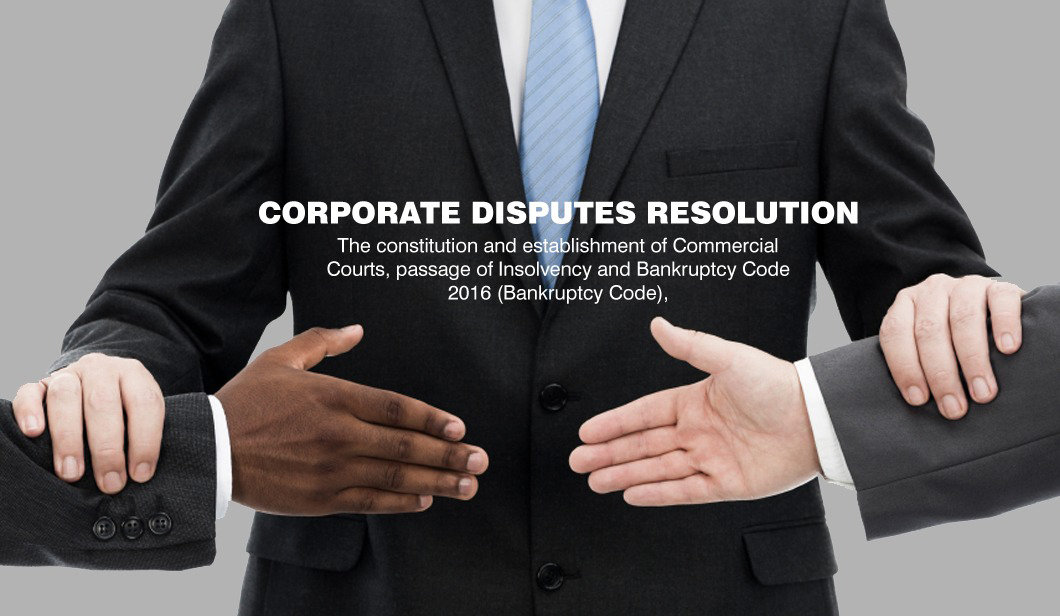Corporate Disputes Resolution
Dispute Resolution Process and Techniques
A number of forums and bodies of dispute resolution have been established under the Companies Act 1956 for business organizations to solve their disputes and to have a judicial settlement.
The constitution and establishment of Commercial Courts, passage of Insolvency and Bankruptcy Code 2016 (Bankruptcy Code), amendments in the Arbitration and Conciliation Act, National Company Law Tribunal (NCLT), and Companies Mediation and Conciliation Rules, 2016 all these have been established in the dispute resolution mechanism. By this the government of India has taken major developing steps in order to ensure the efficient and quick settlement of disputes of corporate/commercial litigations in India.
Track Your Status
Corporate Disputes Resolution Registration Package
Rs.25,000/-+18% GST
- What we provide
- Documents required
- Certificate of Incorporation (CIN)
- Permanent Account Number (PAN)
- Memorandum of Association (eMOA)
- Articles of Association (eAOA)
- Director’s Identification Number (DIN No)
- Digital Signature (DSC)
- GST Registration
- Company 2 Name
- Companies Object
- Address Proof (Rent Agreement, Receipt, Electrical Bill, Owner Property tax)
- Director's PAN, Aadhar, Voter Card
- Director's Electrical Bill
- Director's Driving Licence or Passport (If any)
- Director's Last 6 months Bank statement
- Director's Photo
- Director's Email and Mobile
Mediation and Conciliation
Code of Civil Procedure recognized Mediation in its amendments and Arbitration and Conciliation Act, 1996 introduced the process of Conciliation in respect to the disputes in business organizations.
In Conciliation, the dispute is settled in a friendly and informal manner by the medium of an extra-judicial process. Negotiation is used by the conciliator to bring the disputants to an agreement and reach an amicable outcome. In addition, the Conciliator is only appointed once a disagreement has occurred. The Conciliator's decision is referred to as an "award."
In Mediation, a dispute is settled when a third party interferes between the two conflicting parties to persuade them to adjust the disputes and come to a mutual agreement. Mediation involves a methodical procedure. The Mediator assists the parties in reaching an amicable agreement where both the parties are benefitted. And the mediator's conclusion is referred to as a "settlement."
Thus it is very important to adopt a pragmatic and realistic approach to the dispute resolution.
And dispute resolution methods need to be analysed thoroughly before opting for any one means of resolution of conflicts.
Need Consultancy? Ask Tax Seva Kendra Expert@ Rs. FREE
- Free Consultancy
- Online Documentation
- Anywhere In India





